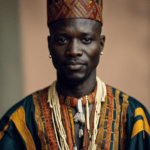
Guinea, officially known as the Republic of Guinea, is a country located on the western coast of Africa. It is bordered by six countries: Guinea-Bissau and Senegal to the north, Mali to the northeast, Côte d’Ivoire to the east, and Sierra Leone and Liberia to the south. The Atlantic Ocean lies to the west. The country is known for its rich history, diverse culture, and abundant natural resources.
Guinea covers an area of approximately 245,857 square kilometers. The country’s landscape is diverse, featuring coastal plains, mountain ranges, and high plateaus. The highest point in Guinea is Mount Nimba, which stands at 1,752 meters above sea level. The country is also home to several rivers, including the Niger, Senegal, and Gambia rivers, which are vital sources of water and transportation.
Guinea has a tropical climate, with a wet and a dry season. The rainy season lasts from April to November, while the dry season runs from December to March. The coastal region has the heaviest rainfall, while the interior regions are drier.
As of 2021, Guinea has a population of approximately 13 million people. The country is ethnically diverse, with over 24 ethnic groups. The largest ethnic groups are the Fulani, Mandinka, and Susu. French is the official language, but various ethnic languages are also spoken. Islam is the predominant religion. Guinea’s culture is rich and varied, with influences from its many ethnic groups. Music and dance play a significant role in Guinean culture, with the djembe drum being a notable cultural symbol.
Guinea’s economy is largely dependent on agriculture and mineral production. It is one of the world’s largest producers of bauxite, and also has significant deposits of diamonds, gold, and other minerals. Despite its natural wealth, Guinea remains one of the poorest countries in the world, with a significant portion of the population living in poverty.
Guinea is a republic, with the president serving as the head of state and government. The country has a multi-party system, but has a history of political instability and corruption. Guinea gained independence from France in 1958 and has since experienced several coups and periods of military rule.
Education in Guinea is compulsory for children between the ages of 6 and 16. The country has made significant strides in improving access to education, but challenges remain, particularly in terms of quality and gender equality. Literacy rates are lower than the regional average, particularly among women and girls.